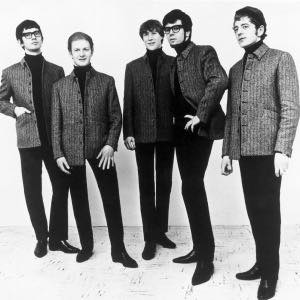Exactly six decades ago, on July 31st, 1965, music history was made at the Imperial Ballroom in Nelson, where Manfred Mann was the star attraction of the night. The iconic band, led by South African-born Manfred Sepse Lubowitz, brought the soulful energy of jazz, blues, and early British rock to an electrified crowd.
Born on October 21, 1941, into a Lithuanian Jewish family in Johannesburg, South Africa, Manfred Mann’s journey to music legend began with a passion for jazz. After studying music in his hometown, he worked as a pianist in local clubs before emigrating to London in 1961.

There, fate intervened when he met percussionist Mike Hugg at Butlins in Clacton, and the two formed the Mann-Hugg Blues Brothers. With talents like Mike Vickers (guitar), Dave Richmond (bass), and dynamic frontman Paul Jones (vocals & harmonica) joining in, the group quickly evolved into one of Britain’s most innovative musical forces of the 1960s.
The band’s sound, rooted in jazz and blues, resonated with the British public, culminating in chart-topping hits like “Do Wah Diddy Diddy” and “Pretty Flamingo”. Their performance in Nelson on that historic summer evening captured the spirit of an era defined by musical experimentation and cultural transformation.
For many who attended that 1965 show, it was more than just a concert—it was an experience that showcased the birth of British rhythm and blues fused with pop genius.
As we mark this 60th anniversary, fans and music historians alike are reminded of Manfred Mann’s enduring influence—not only as a chart-topping band but as a defining voice of a revolutionary musical age.



